It’s A Kind Of Magic
The stage of the domestic cups where the big guns enter always provides the opportunity for an upset.
It’s A Kind Of Magic
Last weekend in England and this weekend in Scotland two of the key sporting dates in the calendar that I look forward to every year came around - the third round of the FA Cup and the fourth round of the Scottish Cup. This is the stage of the competition where teams from the top divisions enter the fold which can lead, from this point on, to one of football’s great eternal memory stokers - the cup giant killing.
Each and every year, lower division and non-league teams that are still in the competition await the third/fourth round draw with baited breath, hoping against hope that they will be drawn against one of the big guns, particularly if they are at home. Not only does playing an elite team bring the minnows more media coverage, it also gives them the chance to have a bigger payday if the match is selected for TV, and of course it affords them the opportunity to actually win and etch their names in history amongst their own fans and the country in the wider sense.
Without the cup, it is highly unlikely that players such as Hereford’s Ronnie Rashford, Wycombe’s Roy Essandoh and Darvel’s Jordan Kilpatrick would ever have become widely known names. These players have been part of moments that will be recalled every year, names cemented in history by that most wonderous of things, the great sporting upset. It is an arena where headlines can be made, particularly absolute corkers such as the immortal ‘Super Caley Go Ballistic Celtic Are Atrocious’ which I still laugh about every time I think about it.
Chances of an upset should technically be less and less every year due to the increased financial disparity that is evident between the different levels of football because of the increased money that television deals and European football brings to the bigger teams, but there is evidence, even within the last five years, that it is still very possible. The aforementioned Darvel beating Aberdeen being one great example in Scotland, Brora Rangers beating Hearts another, whilst in England, Crawley defeated Leeds United, Grimsby beat Southampton, and non-league Lincoln City beat Burnley.
The scrapping of replays means that lower division teams can no longer play for or hold on for a draw in an attempt to get a second payday, but there is an argument to be said that this has perhaps allowed the opportunity for them to be even more brave as they are essentially in a one match shootout with nothing to lose. Many players will dream the night before a match of making their name by scoring an unlikely winner.
When a big match is upcoming, there is a buzz in the air that can sweep through a city or town. I can easily imagine this has been the case in places such as Elgin or Fraserburgh this week with the plum ties they have against Aberdeen and Rangers respectively. People stop to discuss the fixture in the street, bars are full of predictions and virtually everyone has an opinion. Events like this bring supporters out of the woodwork, allow new fans to be created and often provide a sometimes lost sense of community.
Streaming platforms have allowed for documentaries that take a closer look at the running of football teams that are not in the top divison with the likes of Sunderland, Burnley, Leeds United, Salford City and Wrexham all being covered. Particularly in the case of the latter two clubs (although possibly down to their celebrity ownership), as well as the clubs themselves being discussed, the life of the fans is also focused on and a spotlight is shone on what it means to follow a team through all of its ups and downs. It is a wonderful glimpse at something that many of us, all across the country, go through on a weekly basis and is amplified when the chance to get some greater coverage arises.
Sometimes, a good win in the early rounds of the cup provides such a huge confidence boost that unfancied teams continue to progress through the competition into the later rounds creating wonderful fairytale stories that will be spoken of forever. I still remember to this day sitting in my bedroom and watching with awe in 1997 when third-tier Chesterfield, with a team including Sean Dyche and a very young Kevin Davies, drew 3-3 with Middlesbrough at Old Trafford in the FA Cup semi-final to force a replay. Yes they lost that 3-0 but the story had already been written.
In 2001, I vividly remember being at the local snooker club with my friends when the story broke of Roy Essandoh, a striker who had been hired that week through an advert on Teletext of all places due to an injury crisis, firing Wycombe Wanderers past Leicester City and into the semi-finals where they would eventually succumb to Liverpool. It is a story so unbelievable that it can only be true. Essandoh earned a short-term contract, but that was the only goal he would score for Wycombe before he left to continue a career of relative obscurity in lower league and non-league football. I and many others will never forget his name though.
There was also the year of many upsets in 2007-8 where the FA Cup final would eventually be played between Portsmouth and Cardiff City, neither of whom would have been fancied at the start of the tournament but managed to have the draw, momentum, and other results on their side.
Perhaps the biggest fairytale (though eventually heartbreaking) story this century was when third-tier Gretna made it all the way to the Scottish Cup Final in 2006. Backed by the money of businessman Brooks Mileson, the club were on the rise through the divisions and were playing very well. Even still, nobody expected such great things so soon. The draw was kind as they didn’t face top tier opposition in any of the rounds on the way to the final but they beat whoever was in front of them. Powered forward by the goals of James Grady and ‘The Good Doctor’ Kenny Deuchar, they would face Hearts in the final with nothing to fear.
I remember the day well as it was one of those rather annoying occasions where the FA Cup and Scottish Cup finals were to be held simultaneously. Being a Liverpool fan, I was rather desperate to watch the Reds take on West Ham at the Millenium Stadium but as my friends and I reached our chosen drinking establishment, it was clear that we would be relegated to following that action on a small TV in the corner as all of the main screens were (probably rightly in Glasgow) taken over by the action at Hampden.
What went on to transpire isn’t actually what I had predicted but did lead to a wonderful afternoon of football. I was fully expecting to be totally focused on the Liverpool game without any real distraction from Hearts against Gretna, although the football purist in me would obviously still keep half an eye on the score. However, although they had gone behind, the more Gretna kept in it, the more I began to listen to the cheers of the majority of the bar and tear my own gaze away from the Millenium Stadium every so often. When Gretna eventually equalised through Ryan McGuffie with 15 minutes to go, the place erupted, and I almost found myself wanting to split my concentration equally between the two games.
If Liverpool had been winning easily then I might have done so, but it just so happened that at the same time that Gretna were punching above their weight, one of the greatest and most riveting FA Cup finals of modern times was taking place, capped off by Steven Gerrard’s 35-yard piledriver to make it 3-3 in the 91st minute. Both games went to extra-time and my pain in being torn between my own side and one of potentially the biggest cup fairytales of all time continued.
Eventually, both games would go to penalties and my delight in the result going my way in the Welsh capital couldn’t diminish the sense of disappointment that even I felt that Gretna hadn’t completed happy ending in losing, but I was thankful for a wonderful afternoon’s entertainment and keen to follow their story moving forward. And the story did continue, with the club making it all the way to the Scottish Premier League before Mileson withdrew his money due to illness and the club were liquidated in 2008 in an ending far harsher than even Hearts bestowed on them that day.
During my own travels to watch football in person I have also had the pleasure, and despair of watching rather unlikely cup results. In 2013 I followed Millwall all the way to an FA Cup semi-final at Wembley although they ultimately lost to Wigan, who went on to beat Manchester City in the final in another huge upset for the ages.
In my teenage years I regularly followed Dundee United home and away and witnessed triumphs such as beating Rangers in a quarter final at Tannadice in 2001 where the visitors were restricted to having no shots on target in the entire game. I remember the quarter final the following year as well but this time for entirely different reasons. United had been gifted a home tie against First Division team Ayr United but couldn’t get the job done and drew 2-2. Of course, as any self-respecting 16 year old football fan would do, I joined my friends in bunking off school the following Wednesday afternoon to board the coach across the country for the replay and spent a couple of hours standing in the freezing cold on a terrace in a stand so rickety it had no cover from the elements whatsoever, watching my team lose 2-0 and then having to endure a 3 hour coach journey home. Luckily my Dad picked us up at the other end at around 1am. Yes we lost but I will always remember it, and I guess that is the point.
Naysayers suggest that the cup doesn’t matter any more and has lost some of its appeal with the rich prizes on offer elsewhere, but I would hasten to disagree with this. It is true that there are occasions that bigger teams will play younger and less-tested players in some cup rounds but this points more to the gruelling schedules faced throughout the year rather than not caring about the end result. This should also, in effect, give those lower division teams more chance of success which is also surely a good thing, particularly for neutrals out there.
A look at the prizes also shows there is a lot to be gained as in England, a Europa League group stage spot is guaranteed and in Scotland, a spot in the last Europa League playoff round which is better than the team that finishes third in the league receives. Add to that the £2 million the FA Cup winning team receives and the £400,000 the Scottish Cup winner gets and you cannot say that there are not incentives to be successful.
Like many thousands of others, I will be watching the scores this weekend to see if another shock could be on the cards. Even if it doesn’t happen in this round, there will still be stories to tell and someone somewhere will surely make a name for themselves over the course of the competition. For me, the cups are still magic.

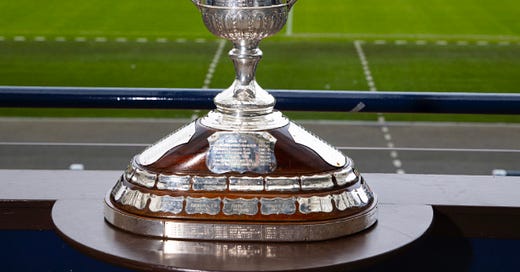



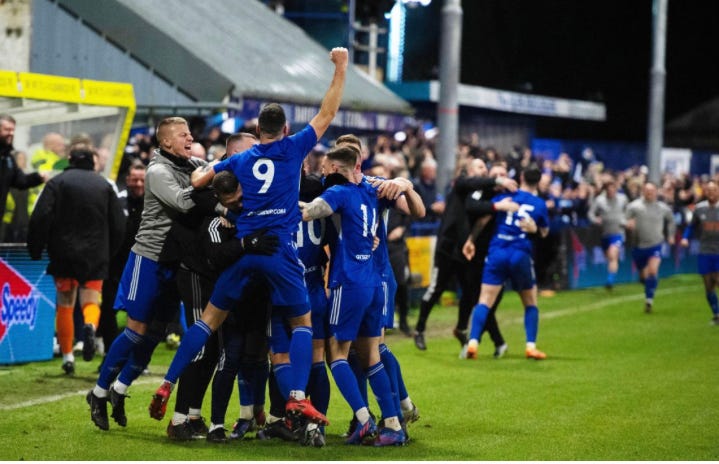
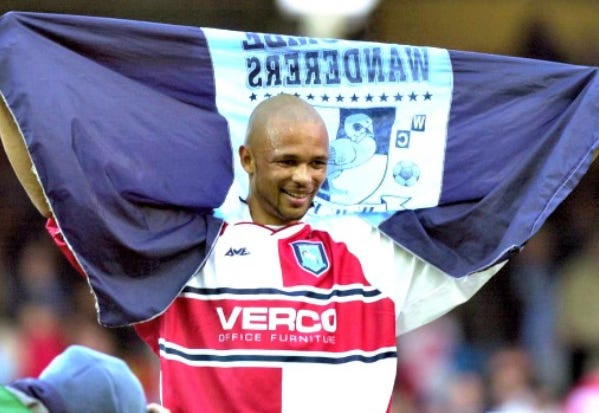
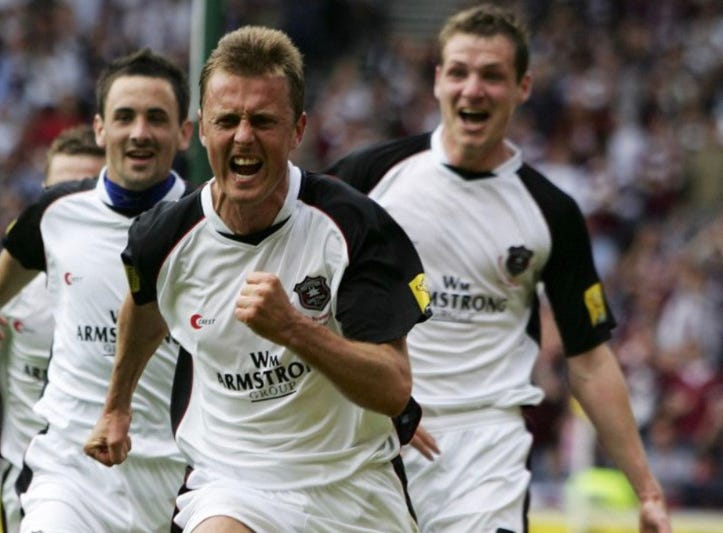
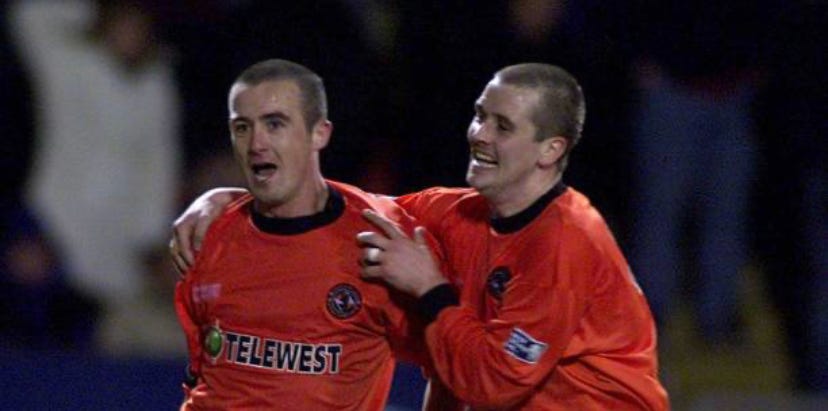
Great blog Sam, and amusing. Keep them coming every Saturday. I'll look out for an underdog team to have a punt on. Missed the caricatures today! BFF